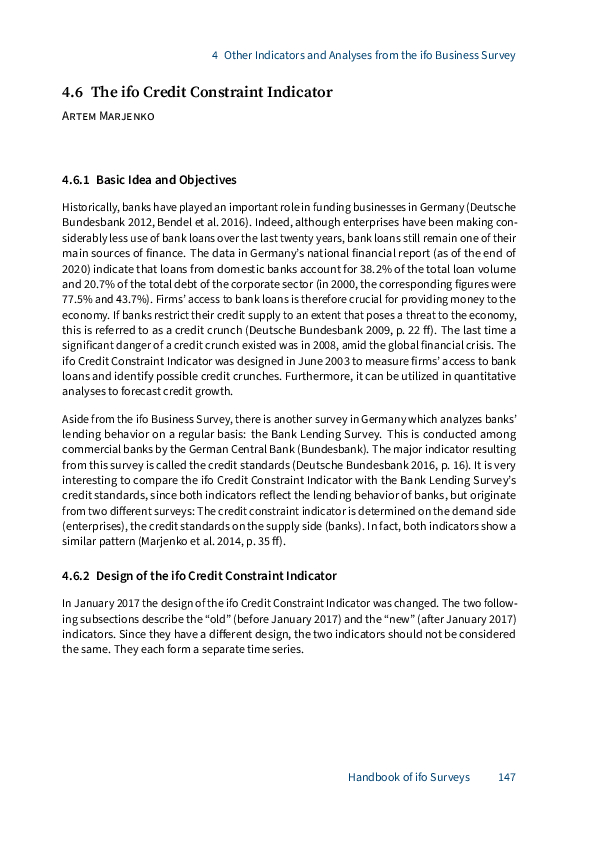The ifo Credit Constraint Indicator
ifo Institut, München, 2023
ifo Beiträge zur Wirtschaftsforschung / 100, 147-151

Historically, banks have played an important role in funding businesses in Germany (Deutsche Bundesbank 2012, Bendel et al. 2016). Indeed, although enterprises have been making considerably less use of bank loans over the last twenty years, bank loans still remain one of their main sources of finance. The data in Germany’s national financial report (as of the end of 2020) indicate that loans from domestic banks account for 38.2% of the total loan volume and 20.7% of the total debt of the corporate sector (in 2000, the corresponding figures were 77.5% and 43.7%). Firms’ access to bank loans is therefore crucial for providing money to the economy. If banks restrict their credit supply to an extent that poses a threat to the economy, this is referred to as a credit crunch (Deutsche Bundesbank 2009, p. 22 ff). The last time a significant danger of a credit crunch existed was in 2008, amid the global financial crisis. The ifo Credit Constraint Indicator was designed in June 2003 to measure firms’ access to bank loans and identify possible credit crunches. Furthermore, it can be utilized in quantitative analyses to forecast credit growth.
Aside from the ifo Business Survey, there is another survey in Germany which analyzes banks’ lending behavior on a regular basis: the Bank Lending Survey. This is conducted among commercial banks by the German Central Bank (Bundesbank). The major indicator resulting from this survey is called the credit standards (Deutsche Bundesbank 2016, p. 16). It is very interesting to compare the ifo Credit Constraint Indicator with the Bank Lending Survey’s credit standards, since both indicators reflect the lending behavior of banks, but originate from two different surveys: The credit constraint indicator is determined on the demand side (enterprises), the credit standards on the supply side (banks). In fact, both indicators show a similar pattern (Marjenko et al. 2014, p. 35 ff)
Enthalten in Zeitschrift bzw. Sammelwerk
Handbook of ifo Surveys
ifo Institut, München, 2023
ifo Beiträge zur Wirtschaftsforschung / 100